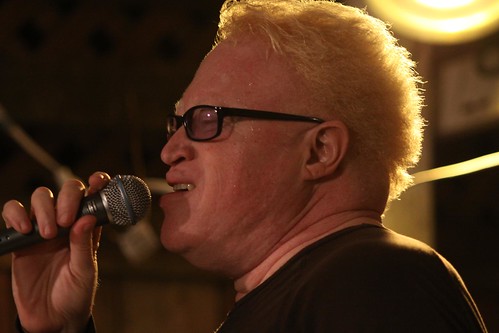Buy Tickets
Acoustic Alchemy have spent over a
quarter century making music and in that time they have not only received
critical acclaim for their albums (including three Grammy nominations), but
also have built a reputation for being one of the most exciting live bands in
the business. For the last decade the band lineup has been made up of Greg
Carmichael on nylon guitar, Miles Gilderdale on steel string acoustic and
electric guitars, Fred White on keyboards and the powerhouse rhythm section of
Greg Grainger on drums and his brother, Gary Grainger on bass.
In the two
and a half decades since their earliest recordings – despite a tragic setback
in the late 1990s and the inherent challenges of the 21st century music
industry – the group has assembled and sustained a vast and loyal following
that stretches well beyond their U.K. origins.
The band’s
story begins with two guitarists, Nick Webb and Simon James, who recorded a
self-financed, self-produced album in the mid 1980s entitled Acoustic Alchemy.
Shortly after the release, James left the partnership to study flamenco guitar
in Spain, leaving Webb to promote the record on his own.
Webb turned
to a rock guitarist named Greg Carmichael, whose background complemented his
own – Webb had studied jazz at Leeds College of Music, while Carmichael had
studied classical at London College of Music – and the two assumed the name of
Acoustic Alchemy.
The duo
initially worked for Virgin Airlines, recording in-flight music for
trans-Atlantic flights, then signed to MCA, where they released their 1987
debut album, Red Dust & Spanish Lace. The album included assistance from
percussionist Mario Aragandoña and drummer Bart Smaak, and was the first of
many to be produced by German sound engineer Klaus Genuit at Hansa Haus Studios
in Bonn.
After two
more records on MCA (Natural Elements in 1988 and Blue Chip in 1989), Acoustic
Alchemy moved to GRP, which would be their home for the better part of the
1990s. Reference Point, released in 1990, was nominated for a GRAMMY® Award,
and marked the beginning of a successful run on GRP that included Back on the
Case (1991), The New Edge (1993), Against The Grain (1994) and Arcanum (1996).
Positive
Thinking (1998) was to be Acoustic Alchemy’s last recording with Webb, who had
been diagnosed with pancreatic cancer at the outset of the project. His
condition worsened to the point where he was unable to put in the studio time
and appear on any of the tracks. He died in February 1998, and the album was
released later that year.
Webb’s
death left the future of the band in question. At the time, the group consisted
of the two acoustic guitarists backed by electric guitar, bass and drums.
Gilderdale, who was playing in the electric guitar slot at the time, expanded
his technical skills and repertoire on acoustic guitar and stepped forward to
take Webb’s place alongside Carmichael at the front of the band.
The band
moved to EMI’s Higher Octave label, where they released a short string of
successful albums, beginning with The Beautiful Game (2000), an album that didn’t
shy away from experimenting with new genres. The Beautiful Game also introduced
keyboardist Anthony “Fred” White to the band lineup. The GRAMMY®-nominated Aart
(2001) is their biggest selling album to date, and includes assistance by
saxophonist Jeff Kashiwa. Radio Contact (2003), the band’s final release on
Higher Octave, is the first in their discography to include a vocal track –
“Little Laughter,” performed by Jo Harrop.
This Way,
released on Narada Jazz in 2007, includes collaborations with jazz/funk/soul
band Down to the Bone and a guest appearance by trumpeter Rick Braun.
Four years
in the making, Roseland is Acoustic Alchemy’s newest recording. The album was
self-produced in Gilderdale’s home studio in York, England (with some
post-production in London and Germany), and released on the band’s newly formed
label, Onside Records. Roseland was licensed to U.S.-based Heads Up
International, a division of Concord Music Group, and released on September 27,
2011.
In 2014,
Live in London, a two CD live recording was released. Live In London is
Acoustic Alchemy’s first ever double album, featuring songs from their most
recent studio release Roseland, along with classic tracks from the band’s 16
album catalog.
Through it
all, the overriding mission of Acoustic Alchemy has been to reach the broadest
possible audience by pushing the potential of instrumental music to embrace a
broad spectrum of styles without being limited to any specific genre.
“For a lot
of people, instrumental music is just a sound that plays in the background,”
says Carmichael. “But we put a lot into it – not just with this record but with
every record we’ve ever made. I’d like to think that after all these years,
we’ve learned how to take people on a journey. A lot of our fans have said that
we do that for them. As long as they keep coming back, and as long as they want
to stay on that journey, we’ll keep doing what we’re doing.

